Simon J. Kyte shares an extract from his book, A Certain Measure of Perfection (click the link to visit the Kindle page on Amazon.com) .
![A Certain Measure of Perfection by [Kyte, Simon J]](https://scvincent.files.wordpress.com/2017/07/41y5hmdk1nl.jpg?w=314&h=500) “At the time of the Restoration, the opening of a locked chest in a remote hovel in Westmorland by a young woman reveals the unexpected life story of her recently-deceased father, a man she has barely known thanks to his self-imposed silence…
“At the time of the Restoration, the opening of a locked chest in a remote hovel in Westmorland by a young woman reveals the unexpected life story of her recently-deceased father, a man she has barely known thanks to his self-imposed silence…
‘A Certain Measure of Perfection’ is constructed around genuine historical characters, including the minister himself, Roger Brierley – a man forgotten by history but one whose abilities went far beyond his rather unexceptional education. Working from an obscure Northern backwater and aided only by candle and condenser, miles from the centres of ecclesiastical power and learning, he completed one of the most extraordinary translations of the century, bringing the dreaded ‘Teutonic theology’ to life in the English language and sending a ‘movement of the Spirit’ not only across the hills of the North but subsequently also through the tightly cramped, jettied-building streets of the City of London.
Over the five volumes of the book, Matthew Brearley, our narrator, takes us on a journey from a Northern English rural backwater through Brierley’s arrest and Matthew’s own time in Grindleton with the curate’s wife, via a repository of Familist texts on the Fens to a London irreversibly sliding towards the chaos of outright civil war.”
Reblogged from A Certain Measure of Perfection:
A misguided belief prominent at the time was that the people we know as the Roma(ni) today were actually the descendents of Egyptian slaves – many said of those who had rescued Jesus. This led some to believe that studying features in their language would bring them to a better understanding of Coptic – which it would not since the Roma spoke an Indo-European language similar to Sanskrit. Nevertheless, the misconception is preserved etymologically: the word ‘gypsy’ is actually originally a corruption of the word, ‘Egyptian’.
Their persecution in England began with the Egyptian Act of 1530 which had the objective of the total removal of the Romani population in England. Inward migration was banned and gypsies already present in England were given a ‘voluntary’ order to leave the country within sixteen days. Of course, many did not do so and became subject to the confiscation of property, imprisonment and deportation as a result. Under Mary there was actually a relative degree of tolerance (not that that tolerance was generally seen as a positive thing!) and in 1554 the position was modified so that gypsies who abandoned their traditionally nomadic lifestyle ceased to be subject to the above punishments. However, those who did not comply became subject to the additional punishment of execution. Such executions continued right up until the Restoration period which suggests that the Puritans, by and large, supported their continuation.
The Grindleton boy also moved away as I approached: he looked visibly repulsed by the sight of a swollen, dead body, the redness in his cheeks that had built up as he had run in the rain, now drained into nothing more than a sickly wanness that almost merged completely into the background rain. Man, no matter how youthful, is always most shocked by the prospect of his own mortality, that sack of sin our carcass becomes – whether discarded sin or otherwise – when the force of life has abandoned it. Momentarily we see not what we might become but what we might already be when all compensating thoughts are removed. Perhaps this is our real anchor of Truth against which all other events in this life must be judged and contextualised? He was a young one, mind! But then, in truth, perhaps youth is actually more fearful of it, mistakenly considering itself to be more distanced from Death? Brierley looked up at me. He showed no signs that he was thinking along those lines.
– Should we pray? [I asked. Well, it had still seemed the most sensible thing to say to a curate at the time!]
He spoke without turning to address me as such.
– I believe that there may not be much point in that. [Without registering it, I took it from that comment that the child was already deceased and beyond any intervention. What he said subsequently, whilst being unexpected, did not change the former conclusion fundamentally.] …Prayer is chiefly for beginners, Matthew. We have to do better than that.
I too was quite gripped by the water swollen corpse of the deceased child. As I said, that is when we view our own time-delimited mortality face-to-face and I was no exception to that general rule. However, it is also the time in which folk such as I sometimes speak of serious matters without giving them the requisite amount of forethought. Sometimes that is actually beneficial for revealing deeper thoughts and bringing them to the surface from the Mind. In his own manner, Brierley had actually just done so too.
– Prayer is only vanity. [I responded.]
Brierley started and looked around, clearly most interested in what I had just said. But he kept his concentration (albeit by utilising all his iron determination) and returned to matters at hand. He may have stored those words in his head but I, for my part, forgot them again in an instant, only to have them return many times again in my life. They would eventually become my constant companions, guides by which I governed myself and, in the shorter term, Brierley was not going to permit me to forget them. His ‘matters at hand’ were not to be belittled. For immediately he commenced dragging the water-weighted body further up the bank away from the soaked ground nearer the Ribble. The numbers looking on were beginning to multiply now. They milled along the length of the bank but at a safe distance, well out of Brierley’s immediate vicinity.
– What are you doing? [I asked, concerned as well as simply interested – and, I have to say, also rather revolted by the scene.]
I leaned right over him, in too close proximity to Death for a good many but Brierley said not a word at that precise moment. His gaze was as solid as Wealden iron[1]; he made an absolute point of not turning to look at me. Instead he astounded me by grasping one of the child’s hands and slamming it down next to mine with an unexpected degree of force. Given that uncharacteristic behaviour, initially, I did not know what he would have me do. Therefore he was forced then to turn to me but there was a petulance in his expression. Without a doubt he didn’t really have the time for any of this! ‘Feel!’ he commanded. That was abrupt and I had little option. So I felt the hand. Yes, it was cold and damp (more than damp, obviously – saturated in fact) and, at first, I considered that that might be what he had wanted me to register but how would it have been anything other than cold and wet having been dredged from the Ribble and, as he continued to fix me and his stare became more knowing, I did feel something else: a faint movement of blood passing through the hand. We did not know much about the circulation of blood in those days (although Brierley himself took great interest in such matters through his physick friends in Halifax and elsewhere but what physick folk might have been learning from their experiments did not filter through beyond the likes of him – we never heard anything of them). But anyone can feel whether life has gone or not if they know where to place their hand and that goes for people as well as sheep or cattlestock[2]. Brierley looked around him as though he were looking for something in the mist of rain that still surrounded us. I followed the direction of his gaze from one part of the foreground landscape to another but, in the end, I could make nothing of what he was doing. Then he turned the body into some contorted position and started to beat the child, slamming his fist hard down repeatedly into the boy’s chest. I looked around. Autumn and the Riddow wife were still adjacent to the crossing point and had been joined by many others including what appeared to be – at least from that distance in the drizzled murk – none other than Anne Brierley. They were about as near as anyone would have wished to be. None amongst them seemed to make any attempt to come any closer. However, there also seemed to be a small cluster of people now on the other side of the Ribble – that is to say, on the Lancashire side – who must have approached from Chatburn even though there was no settlement in the immediate vicinity of the opposite bank. What would they make of all this? To be honest, I did not know what to make of it myself. And I may have been blocking Autumn’s and Goodwife Riddow’s views for I was still fairly close to it when, from nowhere, the swollen body of the Egyptian suddenly started to spew up what must have been a gallon of river water – or probably more.
Continue reading: The raising of the Egyptian Lazarus


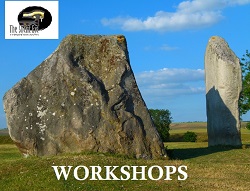







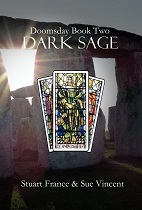













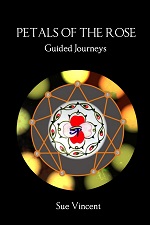








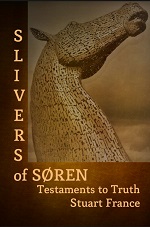


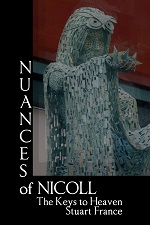




Reblogged this on Die Erste Eslarner Zeitung – Aus und über Eslarn, sowie die bayerisch-tschechische Region!.
LikeLiked by 1 person
Thanks Micheal 🙂
LikeLiked by 1 person
Reblogged this on Author Don Massenzio and commented:
Check out this extract from the book, A Certain Measure of Perfection, by Simon J. Kyte, from Sue Vincent’s blog
LikeLiked by 2 people
Thanks so much for this share – only just noticed it.
LikeLike
My pleasure, Simon.
LikeLike
Pingback: The raising of the Egyptian Lazarus – Extract from A Certain Measure of Perfection by Simon J. Kyte — Sue Vincent’s Daily Echo – A CERTAIN MEASURE OF PERFECTION